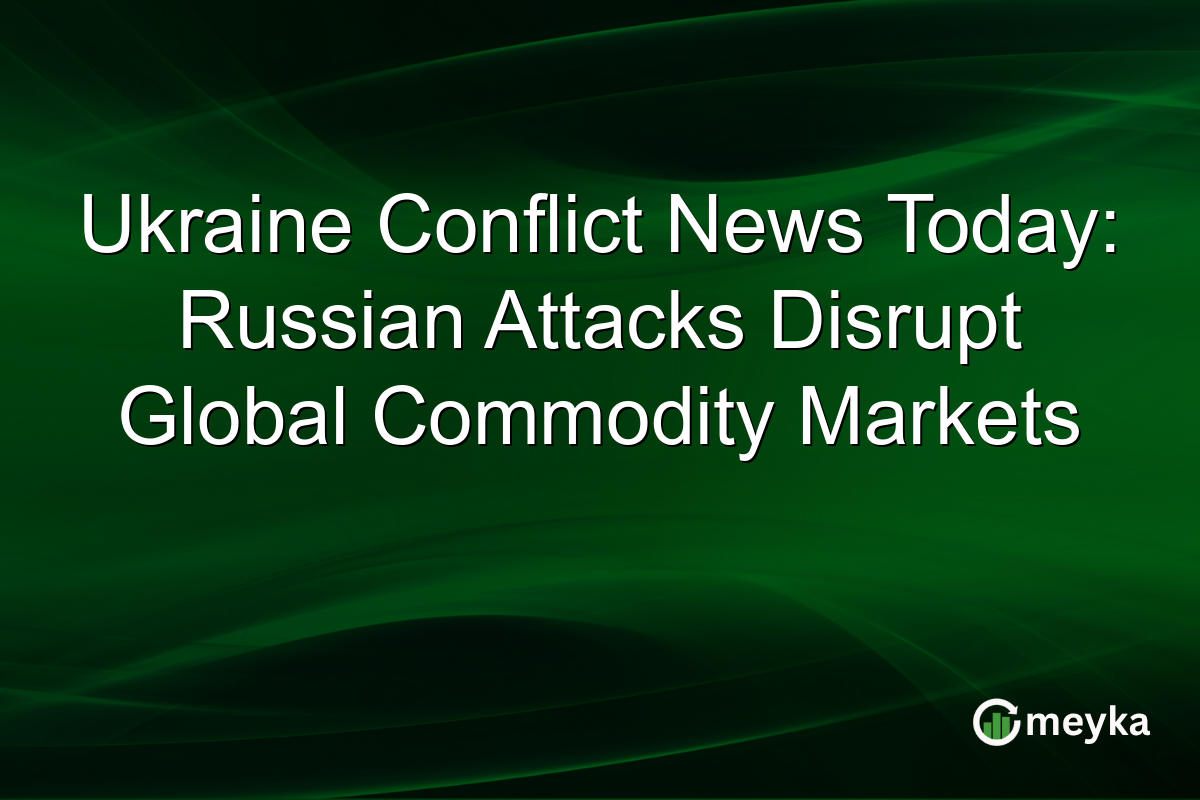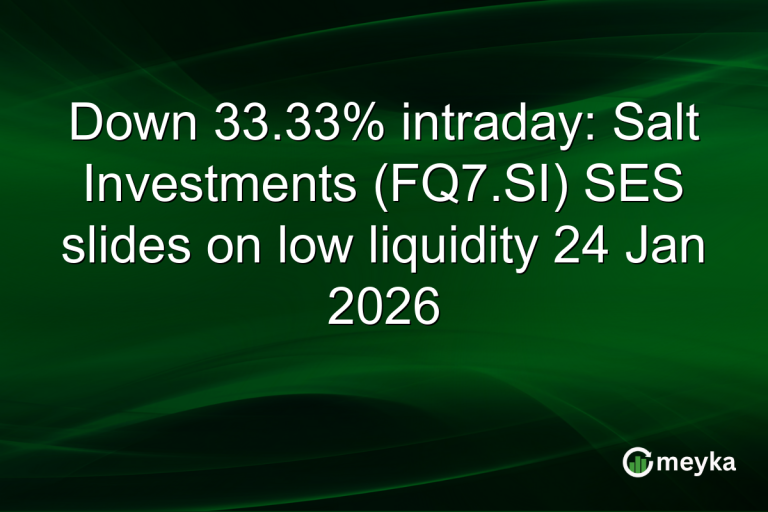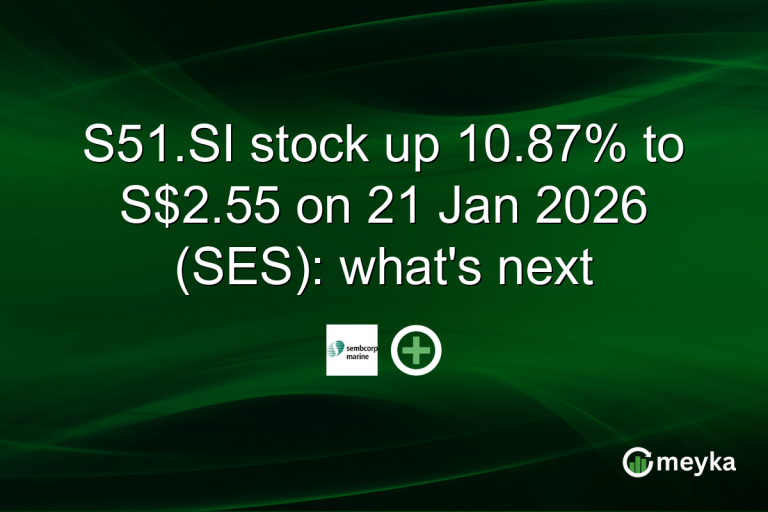Ukraine Conflict News Today: Russian Attacks Disrupt Global Commodity Markets
Today’s resurgence of Russian missile strikes targeting Ukraine’s infrastructure is causing upheaval in global commodity markets. Oil and gold prices have surged, while stock markets face heightened volatility due to escalating geopolitical risks in Eastern Europe. This sheds light on the continued impact of the Ukraine conflict on market dynamics, with investors reassessing sectors like energy and defense amidst tightening Western sanctions. Let’s delve deeper into why these events are rippling through the markets and impacting commodity prices globally.
Oil and Gold Prices Surge Amidst Conflict
As Russian forces continue their offensive, commodity prices in the Ukraine war have taken a sharp turn. Brent Crude (BZ=F) has increased by 3%, reaching $85.74 per barrel, driven by fears of supply disruptions. Similarly, Gold Futures (GC=F) climbed 2.7% to $1,989.50 per ounce as investors flock to safe-haven assets. These trends are directly linked to increased uncertainty and the perceived geopolitical risk in Eastern Europe. The sanctions against Russia exacerbate these fluctuations by impacting production and export capabilities.
For more insights, check this analysis on Bloomberg here.
This shows how geopolitical tensions can swiftly translate into market volatility, affecting portfolios worldwide.
Western Sanctions and Their Market Impact
The ongoing Russia sanctions market disrupt more than politics; they ripple through industries like energy, technology, and finance. Western sanctions are intensifying, aiming to cripple Russia’s economy and curb its military capabilities. This has resulted in a retreat from Russian markets and heightened caution among global enterprises.
Additionally, restrictions are tightening on Russian oil and gas sales, directly influencing global supply chains. The sanctions’ broad scope affects investor sentiment, pushing capital into defensive sectors or outside Russia altogether. The result? Amplified market turmoil and unpredictable price movements in these crucial commodities.
Geopolitical Risk and Stock Market Volatility
The Ukrainian conflict exemplifies Eastern Europe geopolitical risk, particularly affecting indices like the S&P 500 (^GSPC), which closed at 6664.01, up 0.53% today despite recent fluctuations. This index reflects broader market skittishness in response to geopolitical shifts.
Investors are increasingly factoring in geopolitical risks, which impact both the equity market and commodity prices. Rising defense budgets globally are also seeing company valuations in these sectors appreciate. Yet, the persistent volatility means that investors must brace for ongoing short-term disruptions alongside potential longer-term stability.
Investor Sentiment and Future Outlook
Looking ahead, investors are recalibrating strategies amidst fresh geopolitical shocks. With sanctions in place and commodities reacting unpredictably, diversification becomes crucial. Defensive sectors like utilities and consumer staples are gaining appeal.
The Ukraine conflict market impact highlights a need to adjust portfolios considering potential price changes in oil and gold. Those with interests in Eastern European markets must stay informed about developments, as these will likely continue to sway market performance in the foreseeable future.
Final Thoughts
In conclusion, the renewed Russian attacks on Ukrainian soil are dramatically influencing global commodity markets, driving up prices for oil and gold. The Ukraine conflict market impact extends well beyond military boundaries, shaking investor confidence and adding layers of complexity to an already volatile global economy. While some may find safety in traditional investments, understanding the broader geopolitical landscape is essential. Investors should remain vigilant, adapt strategies to accommodate changing risks, and seek opportunities in sectors resilient to ongoing geopolitical instability. By staying informed and flexible, investors can navigate these turbulent times with a balanced approach.
FAQs
The conflict disrupts supply chains, particularly for oil and agricultural products. Russian attacks and sanctions lead to fears of supply shortages, driving up prices for crude oil and gold as investors seek safe havens.
Sanctions against Russia aim to pressure its economy, affecting global financial and commodity markets. These disruptions create uncertainty, prompting shifts in investment towards safer or alternative markets, causing increased volatility.
Geopolitical risks lead to increased market uncertainty, causing stock indices like the S&P 500 to fluctuate. Investors may pull back from riskier assets, leading to defense and essential goods sectors seeing increased interest.
Disclaimer:
This is for information only, not financial advice. Always do your research.






